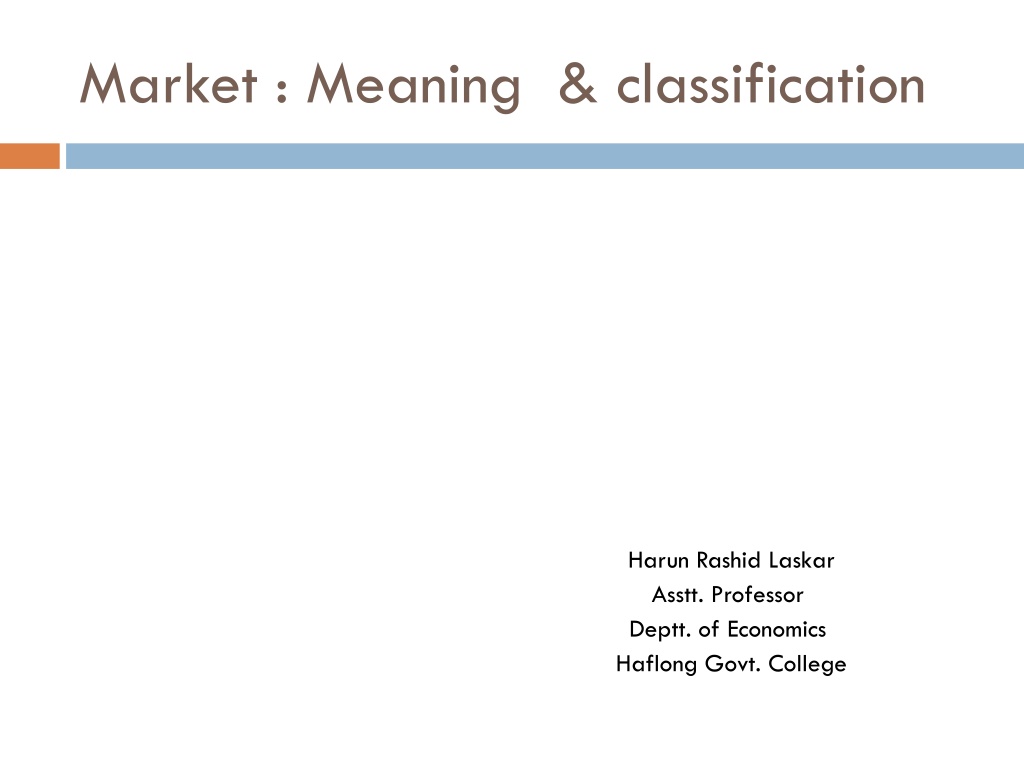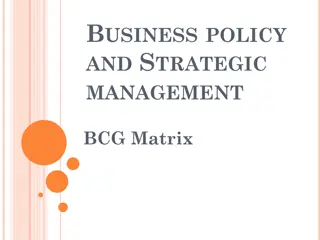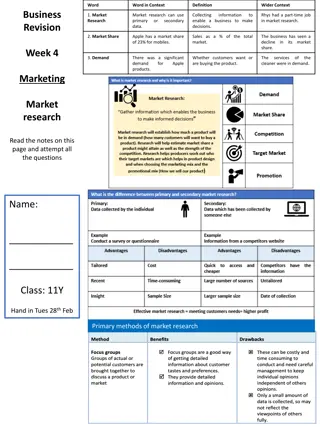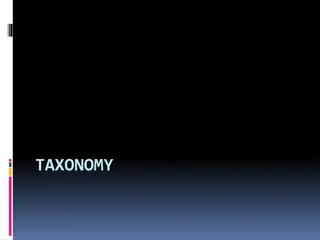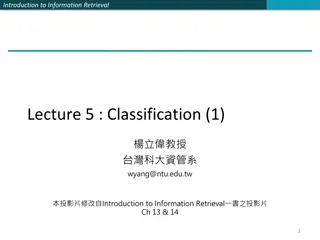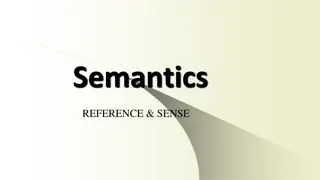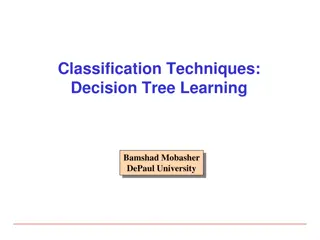Understanding Market: Meaning and Classification
Market signifies a space where buyers and sellers interact to exchange goods for money. In economics, it refers to the entire region where such transactions occur. Markets can be classified based on geographical location, period of existence, and the number of buyers and sellers. Various market types include local, regional, national, international, perfect competition, monopoly, monopolistic competition, oligopoly, and duopoly.
Download Presentation

Please find below an Image/Link to download the presentation.
The content on the website is provided AS IS for your information and personal use only. It may not be sold, licensed, or shared on other websites without obtaining consent from the author. Download presentation by click this link. If you encounter any issues during the download, it is possible that the publisher has removed the file from their server.
E N D
Presentation Transcript
Market : Meaning & classification Harun Rashid Laskar Asstt. Professor Deptt. of Economics Haflong Govt. College
Meaning of market : In ordinary Language Market means a definite place where the buyers and sellers come into direct contact with one another and goods are exchange through the medium of money But in economics market refers to the whole region where buyers and sellers of a commodity are in contact with each other to effect purchase and sale of a commodity
Classification of Market: Market may be classified in various ways as follows , 1 1. On the basis of geographical location : on the basis of geographical location market may be classified as A. Local Market B Regional Market C National Market and E International Market
2. On the basis of period of Existence : On the basis of period of existence market may be classified as A. Very Short period Market: This refers to a period when demand is the main determining factor of price and supply remain fixed B. Short period Market : This refers to a period when demand remain fixed and Supply can be increased through increase in variable factor only C. Long Period Market : This refers to a period when both demand and supply can be change through change in both fixed and variable factors
3 On the basis of numbers of Buyers and Sellers : On the basis of numbers of buyers and sellers: on the basis of numbers of buyers and sellers market may be classified as A. Perfect Competition : It is a market where large numbers of buyers and sellers produce and sell homogeneous products at pre determined price fixed by the market. B. Monopoly : It is a market where there is a single sellers selling a product which has no close Substitutes in the market.
Both these Perfect Competition and Monopoly does not exists in the real life of a market . What really exists is a mixture or a blending of Perfect Competition and Monopoly Which may be called as Imperfect Competition. Imperfect Competition again divided into two types Such as Small group And Large group. Small group is further Divided into Oligopoly & Duopoly and large group is known as Monopolistic Competition. Thus we have three more types of market such as C. Monopolistic Competition : It is a Market Where large number seller and produce and sell closely related but differentiated product. D. Oligopoly : It is a market situation where there are a few firm selling homogeneous or differentiated product E. Duopoly : It is a special case of oligopoly in which there are only two sellers produce and sell homogeneous product which are close substitute .
Conclusion : It is thus seen that in economics market means a system through which goods are exchanged between buyers and seller with or without having any direct contact between them . Market may be classified in various ways such as on the basis of geographical location such as local market, regional market, etc . on the basis of period of existence such as very short period ,short period and long period. on the basis of number of buyers and sellers such as perfect competition ,monopoly monopolistic competition, oligopoly and duopoly . Continued.......
